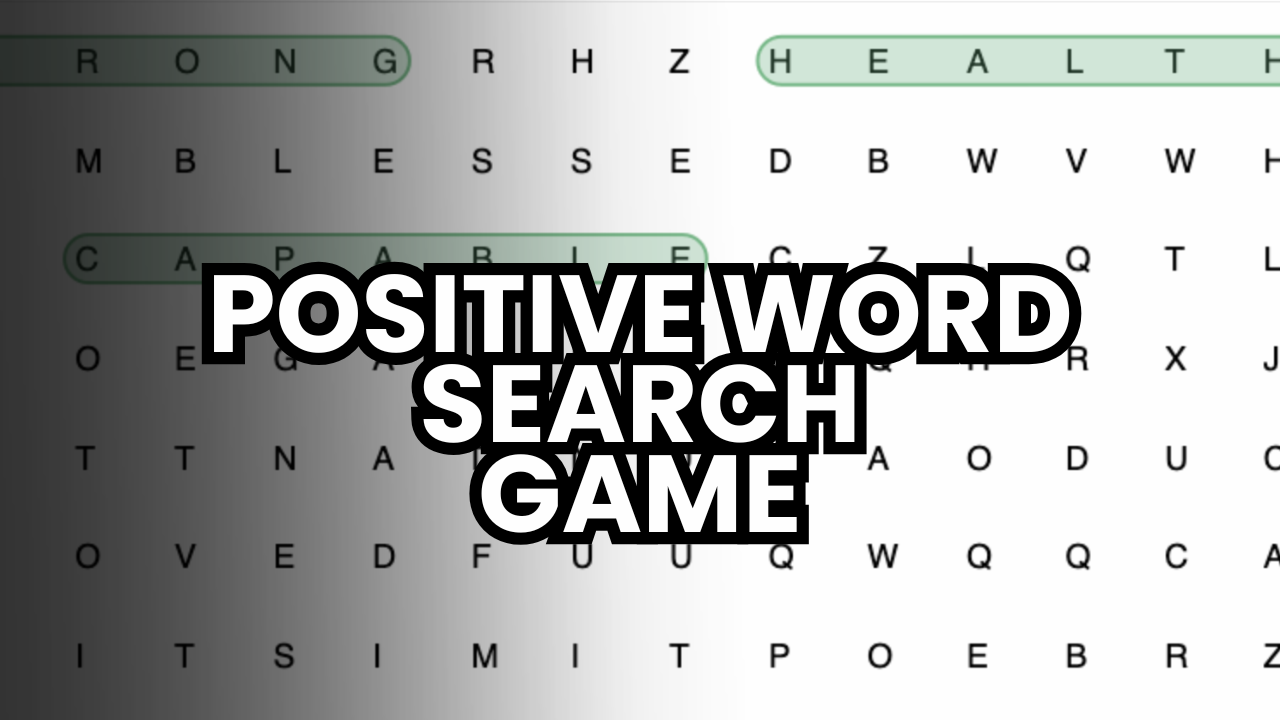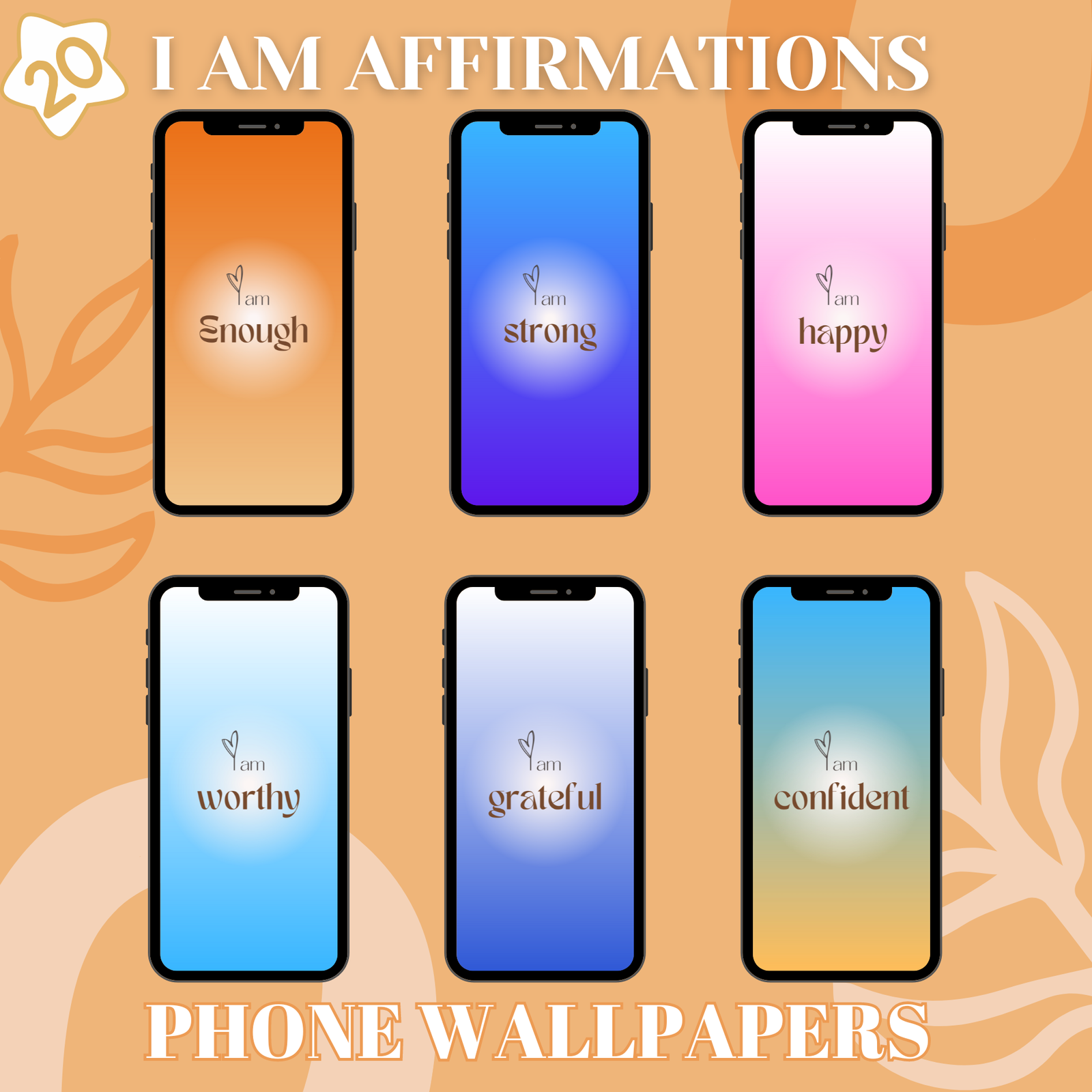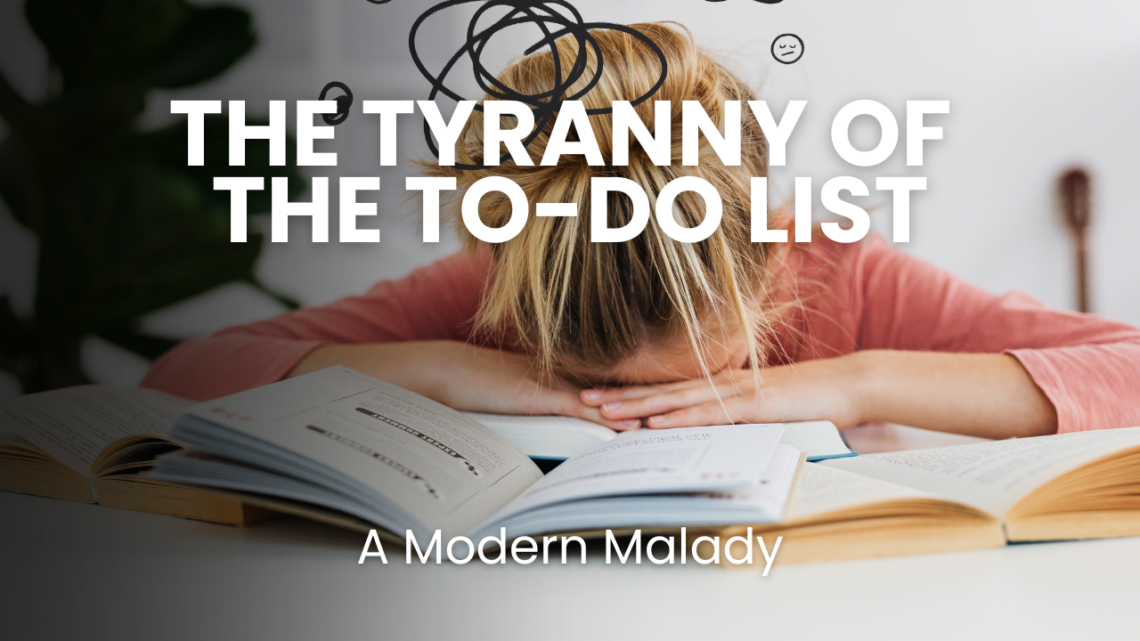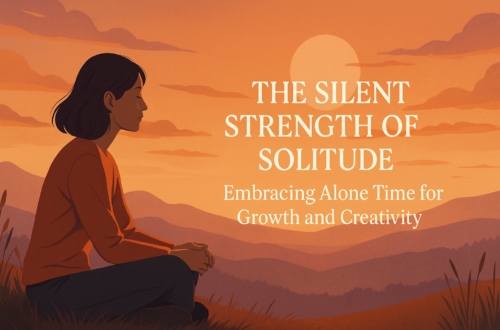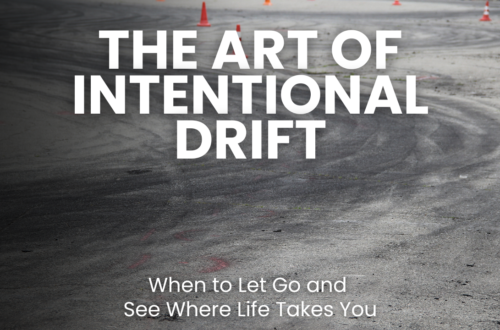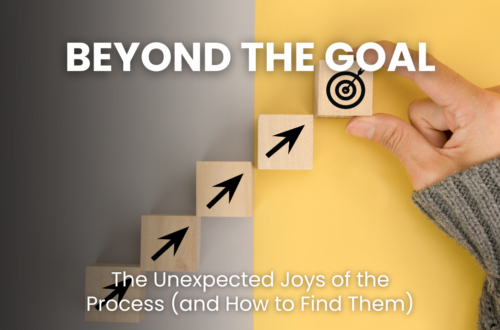We live in an era defined by acceleration. Our devices ping, our inboxes overflow, and the expectation to be constantly “on” is pervasive. From the moment we wake up, our minds often jump to what needs to be done: emails to answer, errands to run, projects to complete, social obligations to fulfill. The to-do list, once a helpful organizational tool, has morphed into a relentless taskmaster, a visible representation of our unfulfilled obligations and perceived shortcomings.
Consider the typical scenario: You meticulously craft your list, perhaps even color-coding it, feeling a fleeting sense of control. But as the day progresses, new tasks emerge, unexpected demands arise, and despite your best efforts, some items remain stubbornly unchecked. What follows is often a familiar cocktail of guilt, anxiety, and a nagging sense of inadequacy. We equate our worth with our productivity, our value with our output.
This societal obsession with productivity isn’t new, but it has been amplified by technology and a cultural narrative that equates busyness with importance. We see curated social media feeds showcasing endless achievements, hear success stories of individuals working 80-hour weeks, and internalize the message that if we’re not constantly striving, we’re falling behind.
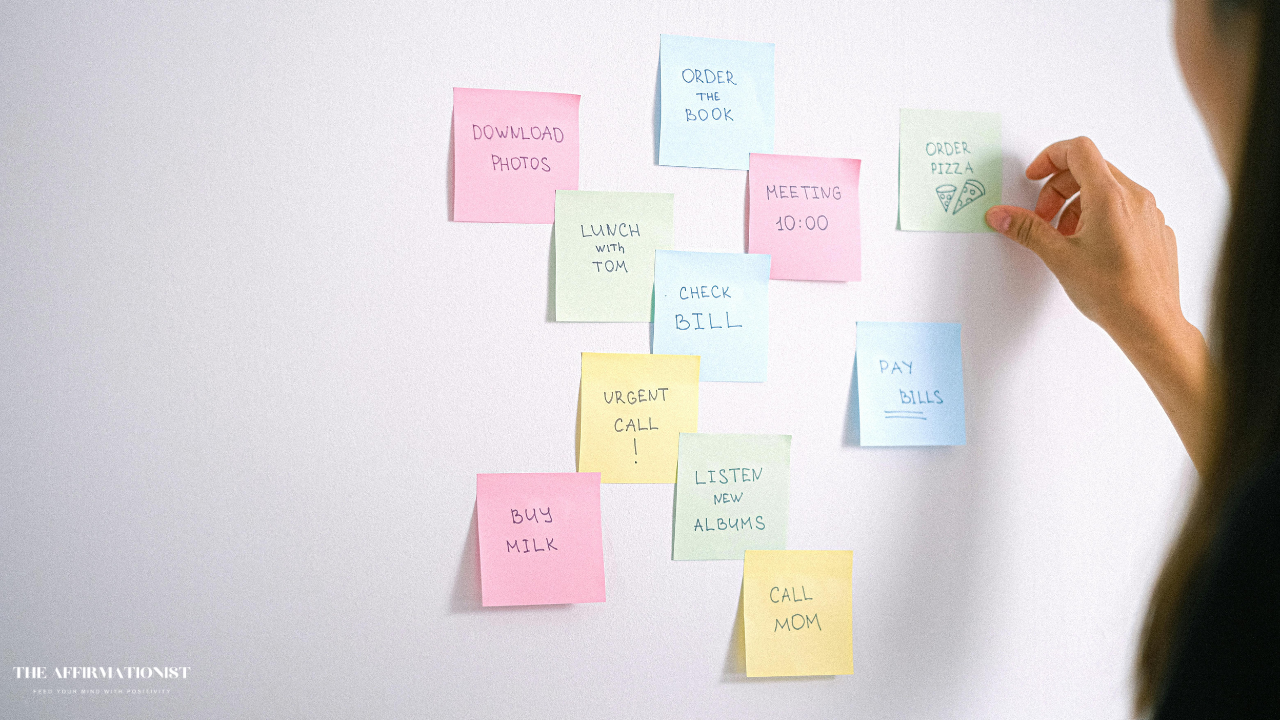
The Psychological Toll of Perpetual Productivity
This incessant push takes a heavy toll, both psychologically and physically.
- Chronic Stress and Burnout: Always being “on” keeps our sympathetic nervous system in overdrive, leading to elevated cortisol levels. This chronic stress is a precursor to burnout, a state of emotional, physical, and mental exhaustion caused by prolonged or excessive stress. Symptoms include extreme fatigue, cynicism, detachment, and feelings of ineffectiveness.
- Anxiety and Guilt: The undone list, rather than being seen as an opportunity for rest, often becomes a source of anxiety. We feel guilty for not doing more, for not being “enough.” This guilt can permeate our leisure time, making it difficult to truly relax.
- Reduced Creativity and Problem-Solving: Our brains need downtime to consolidate information, make connections, and generate new ideas. When we’re constantly engaged in active tasks, we deprive our minds of this crucial processing time, stifling creativity and hindering our ability to solve complex problems.
- Impaired Decision-Making: Fatigue and mental overload impair our cognitive functions, leading to poor decision-making and increased susceptibility to errors.
- Strained Relationships: When we’re perpetually busy and stressed, we have less emotional bandwidth for our loved ones. Quality time with family and friends often takes a backseat to professional or personal obligations, leading to strained relationships and feelings of isolation.
- Physical Health Issues: Chronic stress manifests physically in numerous ways, including sleep disturbances, digestive problems, weakened immune function, headaches, and increased risk of cardiovascular disease.
The irony is that in our relentless pursuit of productivity, we often become less effective. We push ourselves to the brink, only to find our output diminishing, our joy evaporating, and our well-being eroding.
Reclaiming Rest: Why Doing Nothing is Actually Doing Something
The concept of rest has been relegated to a secondary, almost indulgent activity. We see it as a reward for hard work, something to be earned, rather than a fundamental human necessity. But what if we reframed rest not as an absence of activity, but as an active and vital component of our overall well-being and, paradoxically, our long-term productivity?
Rest isn’t merely the cessation of work; it’s a dynamic process of restoration, rejuvenation, and recalibration. It’s when our minds and bodies repair themselves, consolidate learning, and prepare for future demands.
The Science of Doing Nothing
Neuroscience and psychology increasingly highlight the profound benefits of downtime:
- The Default Mode Network (DMN): When we are not actively engaged in a task, our brains shift into the Default Mode Network. This network is highly active during mind-wandering, introspection, and imagination. It’s crucial for self-reflection, understanding others, recalling memories, and planning for the future. Without activating the DMN, we lose out on deep cognitive processing.
- Memory Consolidation: During periods of rest and sleep, our brains actively work to consolidate new memories, transferring them from short-term to long-term storage. This is why a good night’s sleep or even a short nap can significantly improve learning and retention.
- Enhanced Creativity: Many groundbreaking ideas don’t emerge during intense work sessions but rather during moments of relaxation – in the shower, on a walk, or just before falling asleep. This “incubation” period allows disparate ideas to connect, fostering creative breakthroughs.
- Emotional Regulation: Downtime provides an opportunity for emotional processing. When we’re constantly busy, we often suppress or ignore our emotions. Rest allows us to acknowledge and process feelings, leading to greater emotional resilience and well-being.
- Improved Focus and Attention: Our attention spans are not infinite. Constantly pushing ourselves leads to attentional fatigue. Taking breaks, even short ones, helps to reset our focus, allowing us to return to tasks with renewed concentration. Studies have shown that brief periods of rest can significantly improve sustained attention.
- Stress Reduction: Rest directly lowers cortisol levels and activates the parasympathetic nervous system, responsible for the “rest and digest” response. This leads to a reduction in heart rate, blood pressure, and muscle tension, promoting a state of calm.
Far from being lazy, embracing rest is a strategic choice for optimal performance, sustained creativity, and profound well-being. It’s an investment in yourself, an acknowledgment that your worth is not solely defined by what you do, but by who you are.
The Undone List as a Philosophy: Embracing Intentional Non-Doing

The “undone list” isn’t about giving up on your goals or shirking responsibilities. It’s about a fundamental shift in perspective. It’s a philosophy that champions intentional non-doing, recognizing that sometimes the most productive thing you can do is absolutely nothing at all.
This philosophy is built on several key pillars:
- Challenging the Productivity Cult: Actively questioning the societal narrative that equates worth with constant activity and output. Recognizing that this narrative is often unsustainable and detrimental to well-being.
- Prioritizing Well-being Over Perpetual Motion: Placing your mental, emotional, and physical health at the forefront. Understanding that neglecting these aspects ultimately hinders any form of sustainable achievement.
- Embracing Imperfection: Letting go of the need for perfection and the relentless pursuit of checking every box. Accepting that “good enough” is often truly good enough.
- Cultivating Self-Compassion: Treating yourself with the same kindness and understanding you would offer a friend. Recognizing that everyone needs rest and that you are deserving of it.
- Defining Your Own Success: Moving beyond external metrics of success (how much you do, how much you earn) and redefining success on your own terms, incorporating well-being, joy, and meaningful connection.
How to Cultivate Your Undone List Mindset
Adopting this philosophy isn’t about throwing your to-do list away (unless that truly liberates you!). It’s about changing your relationship with it and with yourself.
- Scheduled Downtime: Just as you schedule meetings and appointments, schedule periods of non-doing. This could be an hour each evening, a half-day on the weekend, or even a full “rest day” where you intentionally avoid productive tasks. Treat these appointments with yourself as non-negotiable.
- The Power of the “Not-To-Do” List: This is a powerful counterpoint to the traditional to-do list. Create a list of things you won’t do today, this week, or this month. This could include checking emails after a certain time, attending unnecessary meetings, or taking on new commitments when your plate is full. This proactively protects your time and energy.
- Embrace the “Good Enough”: Strive for excellence, but recognize when perfection is the enemy of progress (and peace). Are you spending hours on a task that could be done sufficiently in much less time? Learn to discern when “good enough” is the optimal choice.
- Mindful Procrastination (Yes, Really!): Instead of feeling guilty about putting things off, sometimes intentional “procrastination” on certain tasks allows you to prioritize rest or more important activities. This isn’t about laziness, but about strategic delay.
- Celebrate the Unchecked Boxes: Instead of seeing unchecked boxes as failures, reframe them as opportunities for rest, self-care, or simply being present. What did not doing that task allow you to do instead?
- Digital Detox Moments: Regularly disconnect from devices. Even short periods away from screens can dramatically reduce mental clutter and allow your mind to wander and recharge.
- Practice Self-Compassion: When the guilt creeps in, acknowledge it, and then gently remind yourself that rest is necessary and deserved. Challenge the inner critic that says you should always be doing more.
- Redefine “Productivity”: Expand your definition of productivity to include activities that nourish your soul, foster connection, and restore your energy. Reading a book, going for a walk in nature, spending quality time with loved ones, meditating – these are all profoundly “productive” in the context of overall well-being.
- The “Parking Lot” Method: If a thought or task comes to mind that you don’t need to address immediately, mentally “park” it. Acknowledge it, but decide you will return to it later. This prevents the immediate pressure to act.
Practical Steps to Cultivate Your Undone List Practice
Now, let’s get practical. How can you genuinely integrate the joy of the undone list into your daily life?
1. The Mindful To-Do List Creation
- Limit Your Top 3: Instead of endless lists, identify the absolute three most important tasks you need to accomplish each day. Anything beyond these is a bonus, not an obligation.
- Be Realistic (Brutally So): Stop overestimating what you can realistically achieve in a day. Account for interruptions, breaks, and unexpected events. If it feels too packed, it probably is.
- Categorize & Prioritize (Then Let Go): Use a system like the Eisenhower Matrix (Urgent/Important) to categorize tasks. Focus on Urgent-Important, then Important-Not Urgent. Be ruthless about what you delegate, delay, or simply eliminate.
- The “Later” List: Have a separate list for tasks that are not urgent or important right now. This clears your main to-do list and reduces mental clutter without forgetting tasks entirely.
2. Schedule Your Rest First
- Block Out “Me Time”: Look at your calendar and proactively block out time for rest, hobbies, exercise, and spending time with loved ones before filling it with work.
- Micro-Breaks: Integrate short, intentional breaks throughout your workday. Stand up, stretch, look out a window, grab a drink of water. These brief resets prevent mental fatigue.
- Lunch Away From Your Desk: Make a conscious effort to step away from your workspace during lunch. Even 20-30 minutes can make a significant difference.
- Weekend Unplug: Designate at least one full day on the weekend where you completely disconnect from work-related tasks and emails. If possible, avoid all digital screens for a significant period.
3. Embrace the Power of “No”
- Set Boundaries: Learn to politely decline requests that don’t align with your priorities or that would overextend you. Remember, saying “no” to one thing often means saying “yes” to something more important (like your well-being).
- Protect Your Time: Be intentional about how you spend your time. Is that meeting truly necessary? Can that conversation be an email?
- Communicate Your Needs: Clearly communicate your boundaries and availability to colleagues, friends, and family. It helps manage expectations.
4. Cultivate Mindful Non-Doing Activities
This is where the true joy of the undone list comes alive. These are activities that are not goal-oriented, not about achievement, but purely about being.
- Nature Walks: Spend time outdoors without a specific destination or purpose. Simply observe, breathe, and be present.
- Reading for Pleasure: Pick up a book (not a self-help or business book, unless that truly brings you joy!) and get lost in a story.
- Creative Hobbies (Without Pressure): Engage in activities like drawing, painting, playing an instrument, or crafting, not with the aim of producing a masterpiece, but simply for the enjoyment of the process.
- Mindful Meditation or Deep Breathing: Even 5-10 minutes of focused breathing can calm the nervous system and bring you back to the present moment.
- Stargazing/Cloud Gazing: Simple, profound, and a wonderful way to feel connected to something larger than yourself.
- Listening to Music: Put on your favorite album and simply listen, without multitasking.
- A “Coffee/Tea Moment”: Savor a warm drink, paying attention to the aroma, taste, and warmth, without scrolling on your phone.
- Simply Sit: Find a comfortable spot and just sit. Don’t plan, don’t worry, don’t engage. Just be. This can feel surprisingly challenging at first, but it’s incredibly powerful.
5. Reframe “Laziness”
The word “lazy” often carries a negative connotation, rooted in the productivity cult. But sometimes, what is labeled as “laziness” is actually your body and mind crying out for rest.
- Distinguish Between Apathy and Need: Learn to differentiate between genuine apathy (which might indicate a deeper issue) and a legitimate need for rest and recuperation.
- Unlearn the Guilt: Actively work to unlearn the guilt associated with not being productive every moment. Remind yourself that rest is productive in its own way.
Case Studies: The Power of Rest in Action
History and contemporary examples are replete with individuals who understood the power of rest and deliberate downtime.
- Charles Darwin: Despite his immense scientific output, Darwin famously structured his days with long walks, naps, and dedicated periods for reading and reflection, often stating that “a man who dares to waste one hour of time has not discovered the value of life.”
- Bill Gates: Known for his “Think Weeks,” where he would seclude himself in a cabin with books and papers, disconnecting from the outside world to read, think, and develop new ideas. These periods were crucial for Microsoft’s strategic direction.
- Arianna Huffington: A vocal advocate for sleep and well-being, she famously collapsed from exhaustion due to overwork. This personal experience led her to become a champion of the “Third Metric” of success, beyond money and power, to include well-being, wisdom, wonder, and giving. Her company, Thrive Global, is built on these principles.
- Artists and Creatives: Many artists and writers throughout history have incorporated periods of apparent “idleness” into their routines, recognizing that creative breakthroughs often emerge from spaciousness rather than frantic effort.
These examples underscore a profound truth: sustained high performance and innovation are not born from endless grind, but from a rhythm of effort and recovery, activity and rest.
The Long-Term Benefits: A Life Reimagined
Embracing the joy of the undone list isn’t just about feeling better in the short term; it’s about fundamentally reimagining your life for sustainable well-being and genuine fulfillment.
- Sustainable Productivity: When you regularly recharge, your periods of focused work become more effective and efficient. You prevent burnout and maintain a higher quality of output over the long haul.
- Enhanced Creativity and Innovation: With more mental space, your brain is free to make new connections, fostering innovative ideas and creative solutions.
- Improved Relationships: When you are less stressed and more present, you have more emotional energy to invest in your relationships, leading to deeper connections and more meaningful interactions.
- Greater Resilience: Regular rest and self-care build your capacity to handle stress and adversity when they inevitably arise. You become more emotionally robust.
- Increased Self-Awareness: Downtime provides opportunities for introspection, allowing you to better understand your needs, values, and desires.
- A More Joyful and Fulfilling Life: By liberating yourself from the constant pressure to “do,” you create space for genuine joy, spontaneous moments, and a deeper appreciation for the simple pleasures of life. You reclaim your time and your peace.
- Better Physical Health: Reduced stress, improved sleep, and more time for self-care naturally lead to better physical health outcomes.
Conclusion: Your Invitation to Un-Do
The journey to embracing the joy of the undone list is not a destination but a continuous practice. It requires conscious effort to challenge deeply ingrained societal norms and personal habits. It demands self-compassion and a willingness to redefine what “success” truly means.
So, look at your to-do list. See those unchecked boxes not as failures, but as gentle reminders. Reminders to breathe. Reminders to rest. Reminders that your worth is inherent, not earned through endless toil.
Dare to embrace the liberation of not having to do it all. Dare to prioritize your peace over perpetual motion. Dare to rediscover the profound joy that comes from simply being.
Your spirit is waiting to be recharged. Your mind is yearning for spaciousness. And the joy of the undone list, far from being a sign of neglect, is actually an invitation to a richer, more vibrant, and truly fulfilling life.
What will you choose not to do today, in order to truly live? The answer may surprise you with its profound peace.
Enhance Your Journey with These Empowering Tools
As you embrace change and navigate life’s transitions with the help of affirmations, it’s important to equip yourself with tools that support your growth and well-being. From affirmation card decks to self-care essentials, the right products can help reinforce your positive mindset and create a nurturing environment for personal transformation.
Below are some carefully selected items that can complement your affirmation practice, making it easier to stay focused, resilient, and mindful throughout your journey :
- 30.48 cm 15-Note Steel Tongue Drum D Key Percussion Instrument Cornices Shape Handpan Drum With Drum Mallets Carry Bag And Music Book, Used For Music Education Concert Spiritual Healing Yoga Entertainment 👉 item link
- Messages of Life Inspiration Cards – 44-Card Deck with Guidebook for Positive Affirmations & Spiritual Growth, Durable Paper Material, Ideal for Ages 14 & Up – Motivational Oracle Card Game 👉 item link
- Deck of Emotions Playing Cards – 54 Card Set for Mental Health, Family Bonding, Party Fun – Christmas, Halloween, Easter, Hanukkah, Thanksgiving – Ideal Gift for Birthday, Aesthetic Home Decor – Paper Material, No Electricity Needed 👉 item link
- 1pc Self-Care English Cover Star Moon Multicolored Optional Record 5 Minutes A Day, For Learning Supplies, Notebook, Library, More Affirmations Reflections, Optimistic, Happy, Simple Undated Hardcover 👉 item link
- 3pcs Wooden Framed Canvas Poster, Modern Art, Inspirational Canvas Painting, Ideal Gift For Bedroom Living Room Corridor, Wall Art, Wall Decor, Winter Decor, Room Decoration 👉 item link
